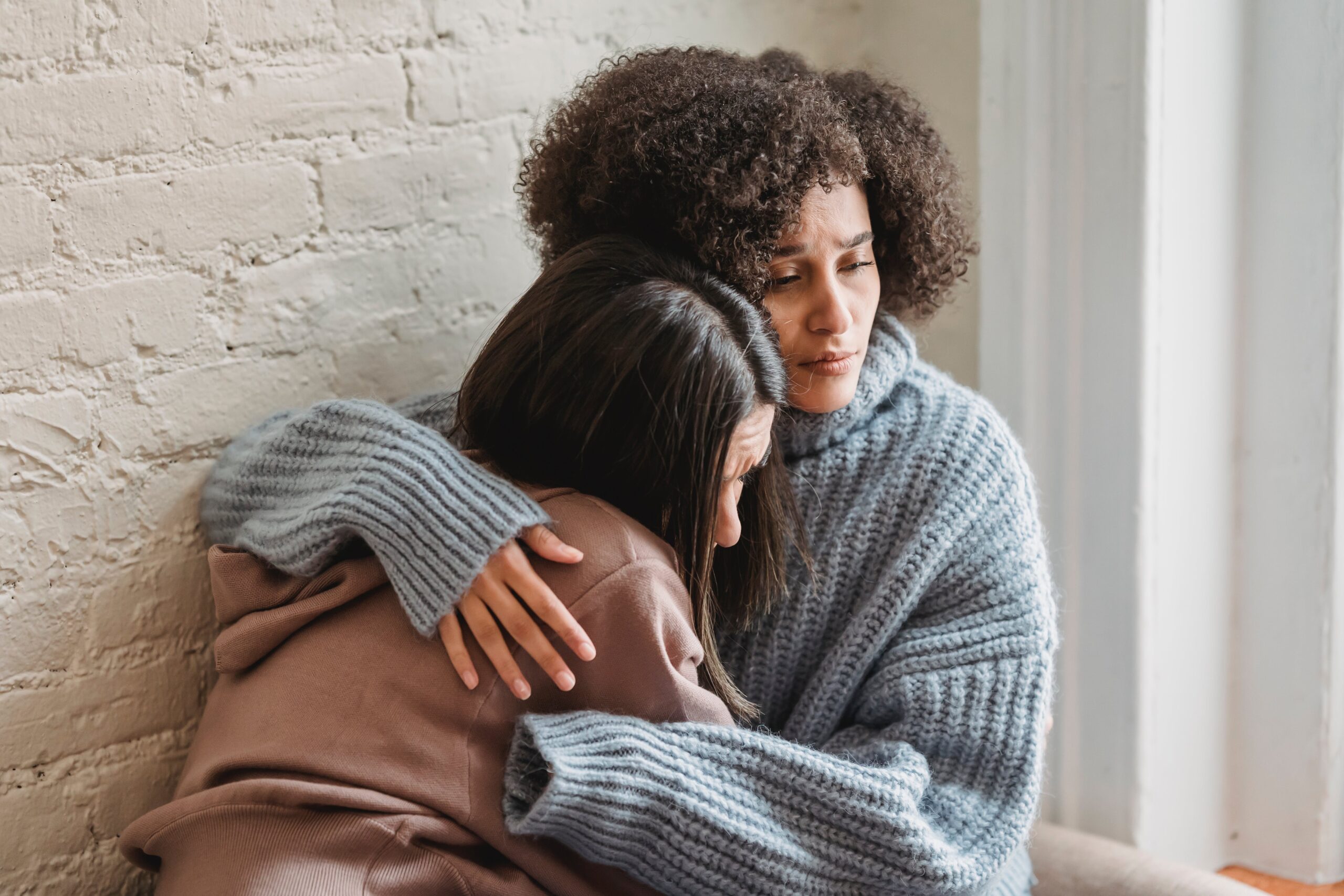Witnessing a friend struggle with depression can evoke a deep sense of empathy and concern. In these moments, the desire to offer meaningful support to and for your depressed friend takes over.
“Educate yourself on what depression is and is not and how depression manifests in Black people because the symptoms can look different than in other cultures. For example, depression in black women can look more like irritability than sadness,” says Denise M. Williams, LMFT.
Recognizing the complexities of depression and the individuality of the experience is crucial. Wanting to support a friend in their battle against depression involves a commitment to understanding, patience, and genuine compassion.
“Don’t try to ‘”fix'” your friend or tell them why they shouldn’t feel the way they do; this can feel invalidating and push your friend into isolation because they don’t feel heard or seen,” she continues.
Williams is a licensed marriage and family therapist. She focuses on helping black women work through and heal from depression, anxiety, and PTSD. She uses Eye Movement Desensitization and Reprocessing (EMDR), Internal Family Systems (IFS), and Ketamine Assisted Psychotherapy (KAP/psychedelics) to help my clients. Williams also owns Well-Play Counseling and Well-being Center, which focuses on psychotherapy and specializes in Social-Wellness. Social-Wellness is our signature brand of mental wellness, where we create events that combine community plus play, infused with psychoeducation.
Williams spoke with 21Ninety about supporting a friend experiencing depression, how to support someone who is grieving, and balancing your well-being.
How to Support Your Depressed Friend
Supporting your depressed friend requires clear communication and consistent presence. Begin by expressing your concern and willingness to listen without judgment. Remember to avoid offering unsolicited advice or attempting to ‘fix’ their problems; encourage them to share their feelings at their own pace.
“Listen to your friend and try to understand what they are experiencing, but don’t tell them you know how they feel; instead, you can hear them and that you support them,” Williams says.
“Ask if there is something you can do or something that would be helpful. Let [your friend] guide you if they can. If they can’t tell you what they need, then be easy, slow, and intentional with your help,” she adds. “Let them know what they feel is real, that they are not ‘crazy, “weird or strange,’ “and that you are there for them.”
Williams explains that being “easy” involves gently suggesting things but allowing your friend to decline the suggestion without judgment. Meanwhile, being “slow” is not rushing to say or do something; you must allow your friend time to make decisions at their own pace. Williams expresses that decision-making will be challenging for your friend. Lastly, being “intentional” involves thinking about everything you say and do and its impact on your friend.
Depression During the Holidays
Sadly, the holiday season can amplify your friend’s depression. The pressure to be festive and cheerful can be a relentless reminder of their inner turmoil, intensifying feelings of isolation and inadequacy.
“For many people, the holiday season can be difficult, and if you’re struggling with depression, it can be even harder,” Williams explains. “Try and gain insight and understanding about what makes the holiday season difficult.”
Williams wants you to consider whether your friend is lonely or financially burdened. Or does the holiday bring about unpleasant memories?
“Once you understand why the holiday season is difficult, ask what might help them feel better or ask them if they are open to some suggestions from you. If they are open to hearing suggestions, share your thoughts, but remember not to take it personally if they reject your suggestions,” she says.
When Your Friend Experiencing Grief
A sense of helplessness takes over when your friend is experiencing grief. All you want to do is lessen their pain, but unfortunately, healing from grief takes time. It’s about being there without imposing, ready to listen if they want to talk, and respecting their space if they need it. The intention is to provide practical help and reassurance, acknowledging that grief doesn’t have a fixed timeline.
“When your friend has experienced a loss, it can be helpful to explore the secondary losses to understand better what might impact the grief,” Williams says. “Secondary losses are the losses that come from the primary loss. “If your friend lost a parent, they may miss the person who planned the holiday meal, did all the cooking, or purchased the food.”
“We often just think of the primary loss, but understanding that your friend may need help planning a meal, preparing for a meal, or some financial assistance could feel supportive,” she continues.
Williams wants you to be gentle and allow your friends to express their needs. You can show up and sit with your friend without speaking, which is enough. You can also ask them if they would like a hug or if you can hold their hand. And it’s okay if they don’t want to do anything or want to be alone.
Balancing Your Well-Being
While supporting a depressed friend is essential, it’s crucial to establish clear boundaries to safeguard your own well-being.
“When supporting a loved one, being honest with yourself about your capacity and time is where you should start. Once you know your capacity and time, tell your friend what you can or cannot do. Reassure your friend that you want to support them, including taking care of yourself,” Williams says.
Williams recommends techniques such as breathwork, meditation, mindfulness, and journaling to stay aware of your own mental state.
Prioritizing your own needs allows you to sustain a healthy balance, ensuring that you can continue to be a reliable source of support for your friend without jeopardizing your stability.
